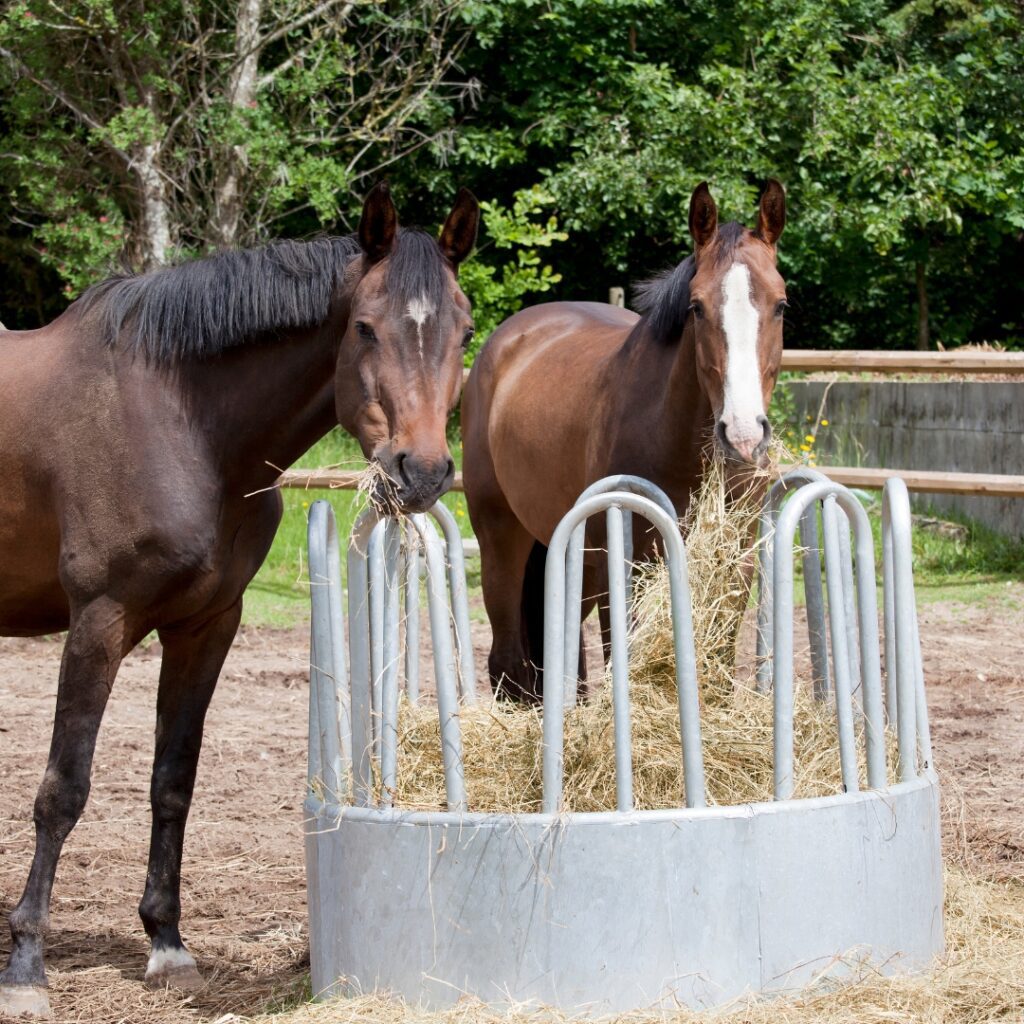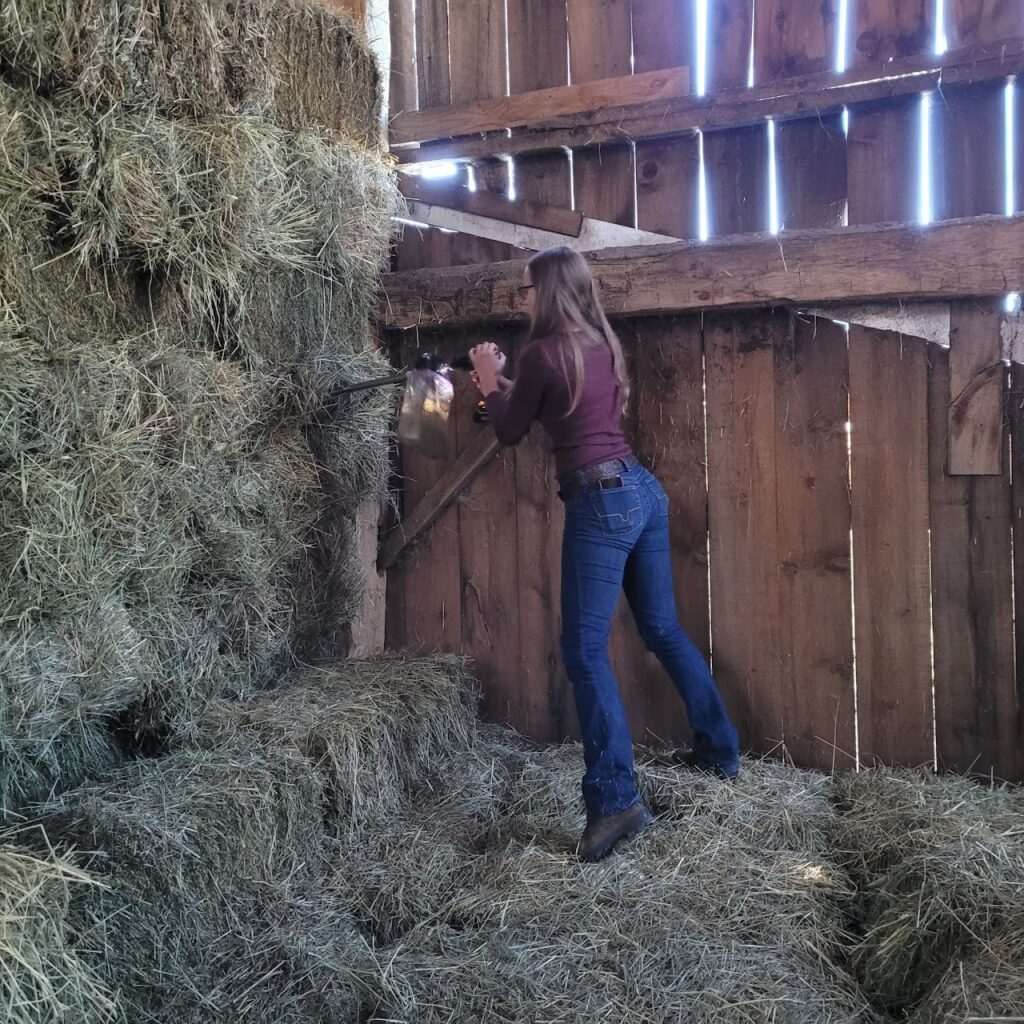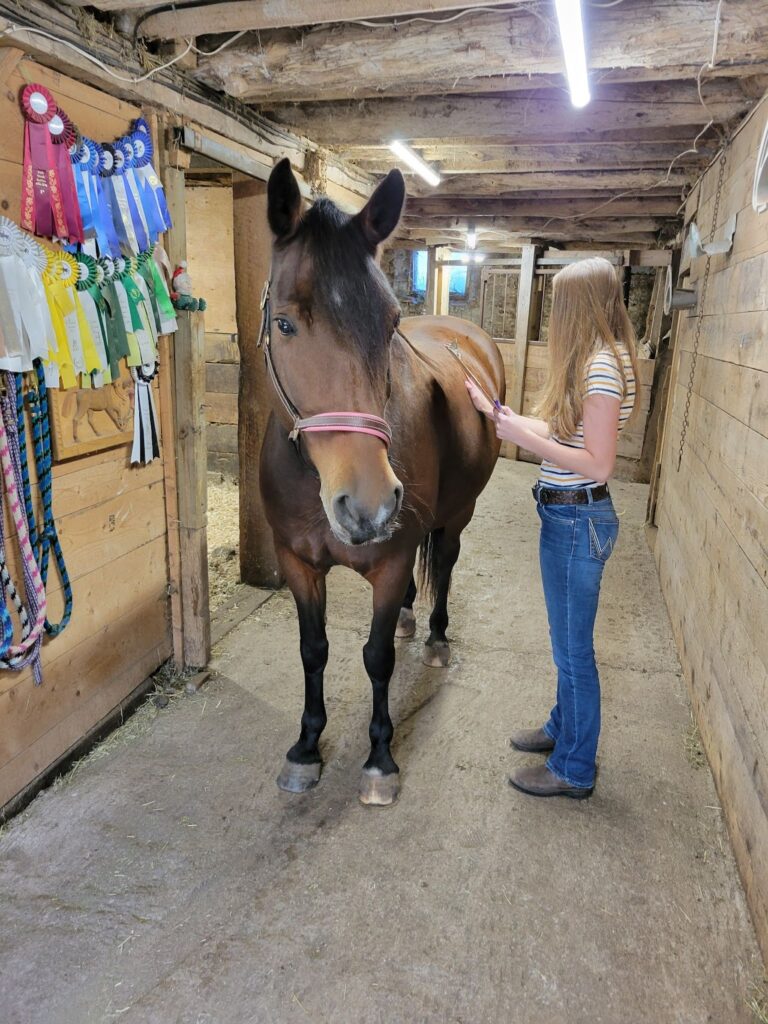
Keeping a horse in optimal condition is a team effort. A veterinarian, farrier, nutritionist, and trainer all play an important role in the horse’s well-being. Many horse owners use the expertise of a nutritionist to not only ensure that their horse is not deficient in any nutrients but to also improve the ration. This can resolve issues such as delicate hooves, over-conditioning, inappetence etc.
Having a nutritionist visit your farm for an evaluation is critical. This allows them to have the entire picture prior to recommending any diet alterations. Below are 3 points on why an in-person consultation is ideal:
1) Taking an accurate hay analysis
A hay analysis is the basis of any equine diet formulation. To get an accurate nutrient analysis, core samples of bales must be taken. Having your nutritionist take this sample will ensure you are getting an accurate assessment back from the lab instead of trying to collect a sample without a proper corer.
Your nutritionist will also be able to assess the hay visually. This is important because if there are any concerning values in the hay analysis, your nutritionist will potentially be able to identify what is causing that inadequate value.

This image shows Madeline taking a hay sample at a client’s farm. She is using a hay coring tool.
2) Hands-on body condition assessment
It is well documented that it can be challenging for owners to accurately assess the body condition of their own horse. Additionally, when the animal is seen by the scorer every day, slight changes in condition may not be noticed.
When a nutritionist can do hands-on body condition scoring you can ensure that you are getting an accurate result. This also provides a great baseline. For example, if your nutritionist is out once a season, they can track the body condition without being influenced by seeing the animal daily.

This image shows Madeline body condition scoring a horse.
3) Complete understanding of the horse’s environment and management
Nutrition is more than what the horse eats, it is also how the horse consumes the feed. When a nutritionist is on farm, they can take note of all aspects of the horse’s life. This can be helpful as sometimes management changes are a key part of dietary recommendations.
In conclusion, when a nutritionist can do an in-person consultation you are getting a more personalized balanced diet that takes more than just nutrient levels into account.
Balanced Bay offers multiple in-person consultation packages, as well as remote options. Starting with an in-person consultation is ideal so that your nutritionist will have the whole picture and get to know you and your horse personally!